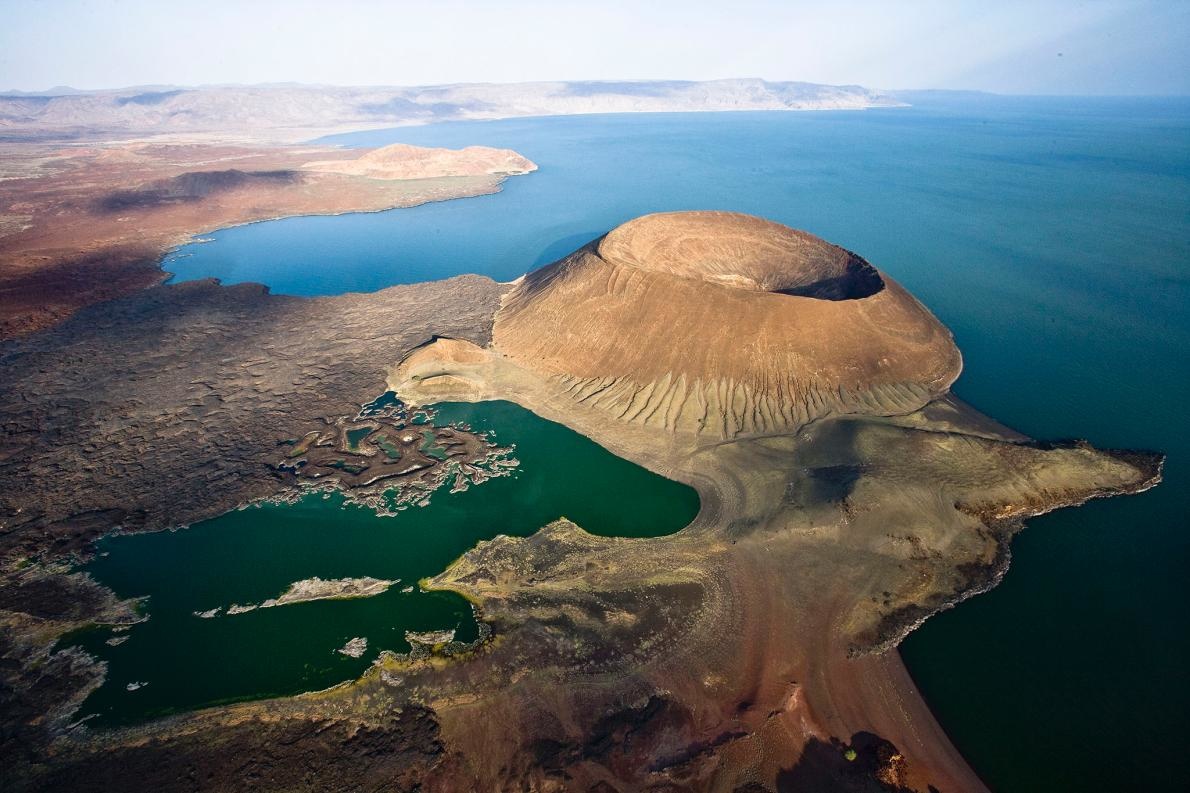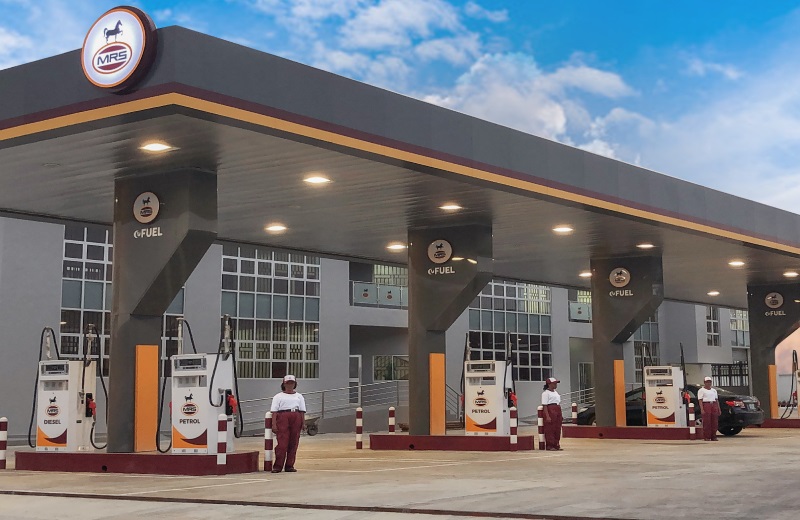General
Ethiopia: Dams, Plantations Threat to Kenyans


By Dipo Olowookere
Dropping water levels in Kenya’s Lake Turkana following the development of dams and plantations in Ethiopia’s lower Omo Valley threaten the livelihoods of half a million indigenous people in Ethiopia and Kenya, Human Rights Watch said today.
Based on publicly available data from the United States Department of Agriculture, Lake Turkana’s water levels have dropped by approximately 1.5 meters since January 2015, and further reduction is likely without urgent efforts to mitigate the impact of Ethiopia’s actions.
Human Rights Watch research based on satellite imagery shows that the drop is already affecting the shoreline of the lake, which has receded as much as 1.7 kilometers in Ferguson Gulf since November 2014. The Gulf is a critical fish breeding area, and a key fishing ground for the indigenous Turkana people.
“The predicted drop in the lake levels will seriously affect food supplies in the Omo Valley and Lake Turkana, which provide the livelihoods for half a million people in both Kenya and Ethiopia,” said Felix Horne, senior Africa researcher at Human Rights Watch. “The Ethiopian government’s moves to develop its resources should not endanger the survival of indigenous people living downstream.”
In 2015, the reservoir behind the new Gibe III dam in Ethiopia began filling. Water that previously flowed unimpeded into Lake Turkana, replenishing seasonal drops in lake levels, has since been held behind the Gibe III dam.
In 2015, the annual July-November flood from the Omo River into Lake Turkana did not occur, resulting in a drop of water levels of 1.3 meters from November 2014.
The very limited artificial release of water from Gibe III in 2016 was not enough to replenish water levels in Lake Turkana. As of January 30, 2017, lake levels were approximately 1.5 meters lower than they were two years earlier according to the data.
People living in fishing communities along Lake Turkana who spoke to Human Rights Watch in August 2016, were generally aware of the risks posed by Gibe III but largely uninformed about the plantations and the devastating impact they could have on their livelihoods.
When Human Rights Watch visited communities around Ferguson Gulf on the western lake shores that month, local residents had noticed changes from previous years in the lake levels.
People who depend on fishing for their livelihood said that their daily catch has been reduced. One 50-year-old woman living near Lake Turkana told Human Rights Watch in August 2016: “It has been difficult these days…the main issue has been hunger.
There is reduced water in the lake.” While multiple factors contribute to the decline, including overfishing and unsustainable fishing practices, a further drop in lake levels will most likely reduce catches even further.
The Kenyan government has done little to address the impact from Ethiopia’s Omo Valley development, or to press Ethiopia to take steps to mitigate the damage and to consult with and inform affected communities about the impact of the project.
The governments of Kenya and Ethiopia should urgently work with these communities to ensure upstream industrial works does not devastate their livelihoods, Human Rights Watch said.
In addition to the industrial developments in lower Omo, climate change is exacerbating the already significant problems the Turkana people face in getting sufficient food and water, and maintaining their health and security.
“The Ethiopian government has shown scant regard for the lives and livelihoods of already marginalized communities who are reliant on the Omo River and Lake Turkana for their livelihoods,” Horne said. “In its rush to develop its resources it has not developed strategies to minimize the impact on those living downstream.”
Ethiopia’s Gibe III dam, which opened on December 17, 2016, is a key component of a massive industrial project in the lower Omo Valley that includes a cascade of water-intensive mega dams, and sugar and cotton plantations.
The sugar plantations have been under development in the Omo Valley since 2011. Based on Human Rights Watch estimates derived from satellite imagery, approximately 19,500 hectares of land has been cleared on the east bank of the river for sugar plantation development.
An additional 10,500 hectares has been prepared for irrigation on the west bank. The sugar plantations are planned to be 100,000 hectares. According to the Ethiopian Sugar Corporation, the first of the four sugar processing factories should be ready to begin production in early 2017.
In Ethiopia, livelihoods of those living in the Omo Valley depend on cattle grazing and planting crops in the rich alluvial soil along the banks of the Omo River. This alluvial soil is replenished by the annual flood, which deposits water and nutrient rich sediment along the banks. A lack of floods in 2015 and an inadequate artificial flood in 2016 are making it more difficult to grow food along the Omo River.
Some communities have also reported restricted access to the Omo River and food shortages in 2016.
Furthermore, the plantations necessitate clearing of land used by agro-pastoral indigenous groups including the Bodi and the Mursi. The Bodi have been the most heavily affected, with a significant area of their land cleared.
“The projections of the water drawdown on Lake Turkana, routinely rubbished by Ethiopia’s government, are coming true and lake levels have started dropping,” Horne said. “This should serve as a warning about what could happen if the Ethiopian government continues to ignore the needs of downstream communities in its rush to develop its resources.”
General
NIMASA Mulls Expansion of Nigeria’s Deep Blue Project

By Adedapo Adesanya
The Nigerian Maritime Administration and Safety Agency (NIMASA) is considering expanding the country’s Deep Blue Project due to its perceived success, with impact felt across the Gulf of Guinea, where it has helped to reduce piracy massively and gained global recognition, to ensure sustainability and greater impact.
The Director General of NIMASA, Mr Dayo Mobereola, made this known during his strategic visit to the Chief of Naval Staff, Vice Admiral Idi Abass, at the Naval Headquarters, Abuja.
Mr Mobereola, while commending the Navy for the harmonious collaboration with NIMASA and congratulating the CNS who had previously served as Maritime Guard Commander under the agency, called for continued partnership with the security outfit under his watch.
“It is important that we continue our partnership and strengthen our relationship. Our purpose here is to congratulate you and to discuss the benefits of the Deep Blue Project, how to sustain it, expand it, and increase its impact on the Gulf of Guinea.
“We are confident that we have the backing of the President, the Minister of Marine and Blue Economy, and the Nigerian Navy, hence, we are working towards presenting our proposal on the necessary improvements to be undertaken,” he stated.
The DG acknowledged the importance of the Deep Blue Project, noting that its impact resonates globally, with the International Maritime Organisation (IMO) commending it.
“The Deep Blue Project is vital, and countries around Africa and some other parts of the world are coming to copy our model. The IMO is asking how a civilian organisation was able to achieve this feat. It is therefore important that we continue to collaborate and do even better for greater sustainability,” he said.
Mr Mobereola also congratulated the Chief of Operations, Nigerian Navy, Rear Admiral Musa Katagum, who is joining the NIMASA governing board as the Navy’s representative.
On his part, the Chief of Naval Staff, Vice Admiral Idi Abass, while welcoming the NIMASA DG and his delegation, commended the Agency for the good work it is doing in the maritime sector and its continued support to the Nigerian Navy.
“Part of my command’s objective is to work in synergy with other agencies to achieve our goal as a country. We complement each other. We have no option but to collaborate and synergise.”
The Naval chief noted some concerns, which include the MoU between NIMASA and the Nigerian Navy, which has been in place since 2007 and should be revisited.
He also solicited for the Navy to be called upon for such needs as vessel repair, hydrographic surveys and chartings, stating the Navy’s capacity in handling such tasks.
The CNS also canvassed NIMASA’s assistance for wreck removal, particularly as the Navy gears towards its 70th Anniversary, where it looks forward to welcoming foreign ships.
He further commended NIMASA for its recent launch of the Cabotage Vessel Financing Fund (CVFF) Application Portal, noting that the organisation has come a long way in its planned disbursement of the fund.
General
Ikeja Electric Fumes Over Impropriety Allegations Against CEO, Chairman

By Adedapo Adesanya
Ikeja Electricity Distribution Company has described as malicious and misleading a widespread publication currently circulating online alleging impropriety about its chief executive, Ms Folake Soetan, and its board chairman, Mr Kola Adesina.
The management of the DisCo noted that a publication attributed to ‘Nigerian Global Business Forum’ defamed its CEO and the chairman of the IKEDC board.
The company said, “The publication, attributed to yet to be verified individuals and organisation, is clearly intended to misinform the public and bring the company and its leadership into disrepute through fabricated claims, the DisCo observed.”
Ikeja Electric noted that its investigation so far revealed that the ‘Nigerian Global Business Forum’ is an unregistered organisation with no recognised legal or corporate existence locally or abroad.
According to the energy firm, the signatories, “Dr Alaba Kalejaiye” and “Musa Ahmed,” have no verifiable professional credentials or established public profiles, and the publication contains false and misleading statements regarding Ikeja Electric’s operations, safety record, and financial practices.
The organisation said it had instructed its legal advisers to conduct a thorough forensic investigation and to initiate defamation proceedings against the authors, publishers, and any persons or entities found responsible for sponsoring or disseminating this malicious publication.
Ikeja Electric said it operates within a strict framework of accountability and remains committed to transparency and service improvement, warning it will not tolerate coordinated disinformation campaigns aimed at undermining public confidence and tarnishing its corporate integrity.
“Ikeja Electric remains steadfast in its mandate to deliver reliable power while upholding the highest standards of corporate governance and customer excellence.
Members of the public are advised to disregard the false publication in its entirety,” it said in a statement.
General
PMS May Sell N1,000 Per Litre if Marketers Adopt Costly Coastal Loading

By Aduragbemi Omiyale
Nigerians may be forced to purchase premium motor spirit (PMS), commonly known as petrol, for almost N1,000 per litre if marketers choose to go for the costly coastal evacuation and not the cheaper gantry loading, the Dangote Petroleum Refinery has cautioned.
Though the company clarified that marketers were free to choose their preferred mode of evacuation, it emphasised that the implication of adopting the coastal loading was that consumers would pay more for the product because of the extra costs.
According to Dangote Refinery, “Coastal logistics can add approximately N75 per litre to the cost of petrol, which, if passed on to consumers, would push the pump price of PMS close to N1,000 per litre.”
The firm noted that its “world-class gantry facility” has 91 loading bays capable of loading up to 2,900 tankers daily.
Operating on a 24-hour basis, the facility can evacuate over 50 million litres of Premium Motor Spirit PMS, 14 million litres of Automotive Gas Oil (diesel) and other refined products each day, it added, urging marketers and policymakers to prioritise logistics choices that support price stability and consumer welfare.
It stressed that direct gantry evacuation eliminates port charges, maritime levies and vessel-related costs that do not add value to end users, helping to optimise costs, improve distribution efficiency and support price stability.
“Reliance on coastal delivery, particularly within Lagos, may introduce avoidable costs with material implications for fuel pricing, consumer welfare and overall economic wellbeing,” the company stated in a statement.
Based on Nigeria’s average daily consumption of about 50 million litres of PMS and 14 million litres of diesel, the refinery estimated that sustained dependence on coastal logistics could impose an additional annual cost of roughly N1.752 trillion. This cost, it said, would ultimately be borne either by producers or Nigerian consumers.
The refinery also renewed calls for coordinated investment in pipeline infrastructure nationwide, arguing that functional pipelines linking refineries to depots would significantly cut distribution costs, improve supply reliability and strengthen national energy security.
It said domestic refining has already delivered measurable benefits to the Nigerian economy. Since the commencement of operations, the price of diesel has fallen from about N1,700 per litre to N1,100 and currently trades between N980 and N990. Similarly, PMS prices have declined from about N1,250 per litre to between N839 and N900.
It added that increased local supply has sharply reduced fuel importation, eased foreign exchange pressures and improved market stability, contributing to a stronger naira, which recently traded at about N1,385 to the dollar.
-

 Feature/OPED6 years ago
Feature/OPED6 years agoDavos was Different this year
-
Travel/Tourism9 years ago
Lagos Seals Western Lodge Hotel In Ikorodu
-

 Showbiz3 years ago
Showbiz3 years agoEstranged Lover Releases Videos of Empress Njamah Bathing
-

 Banking8 years ago
Banking8 years agoSort Codes of GTBank Branches in Nigeria
-

 Economy3 years ago
Economy3 years agoSubsidy Removal: CNG at N130 Per Litre Cheaper Than Petrol—IPMAN
-

 Banking3 years ago
Banking3 years agoSort Codes of UBA Branches in Nigeria
-

 Banking3 years ago
Banking3 years agoFirst Bank Announces Planned Downtime
-

 Sports3 years ago
Sports3 years agoHighest Paid Nigerian Footballer – How Much Do Nigerian Footballers Earn












